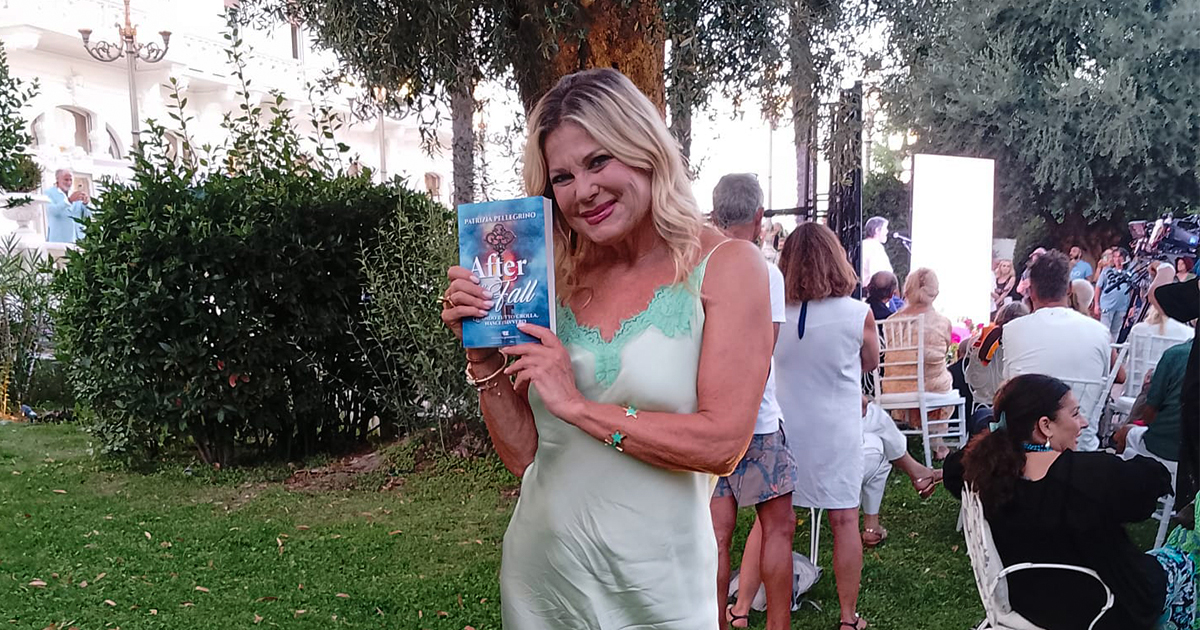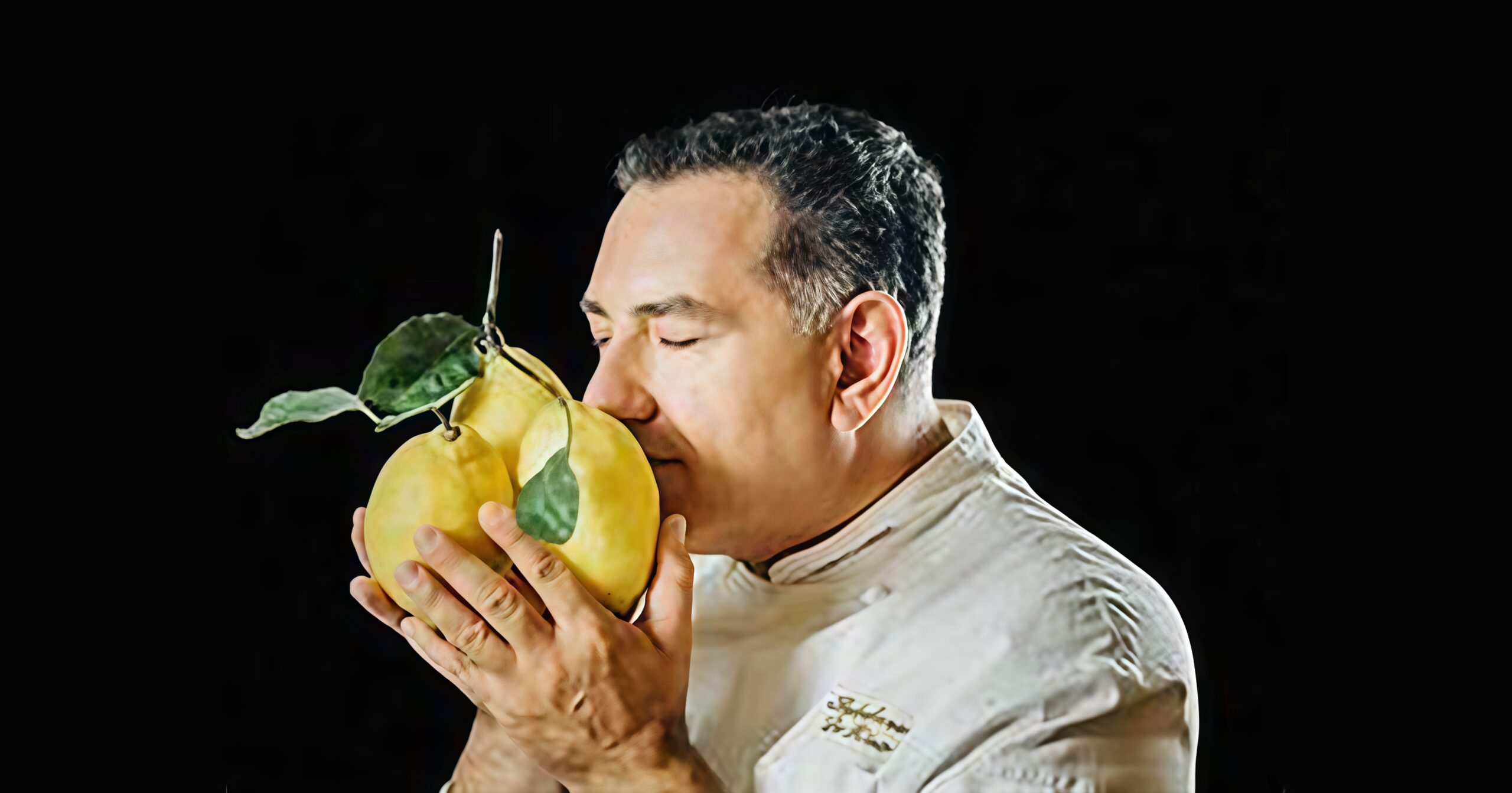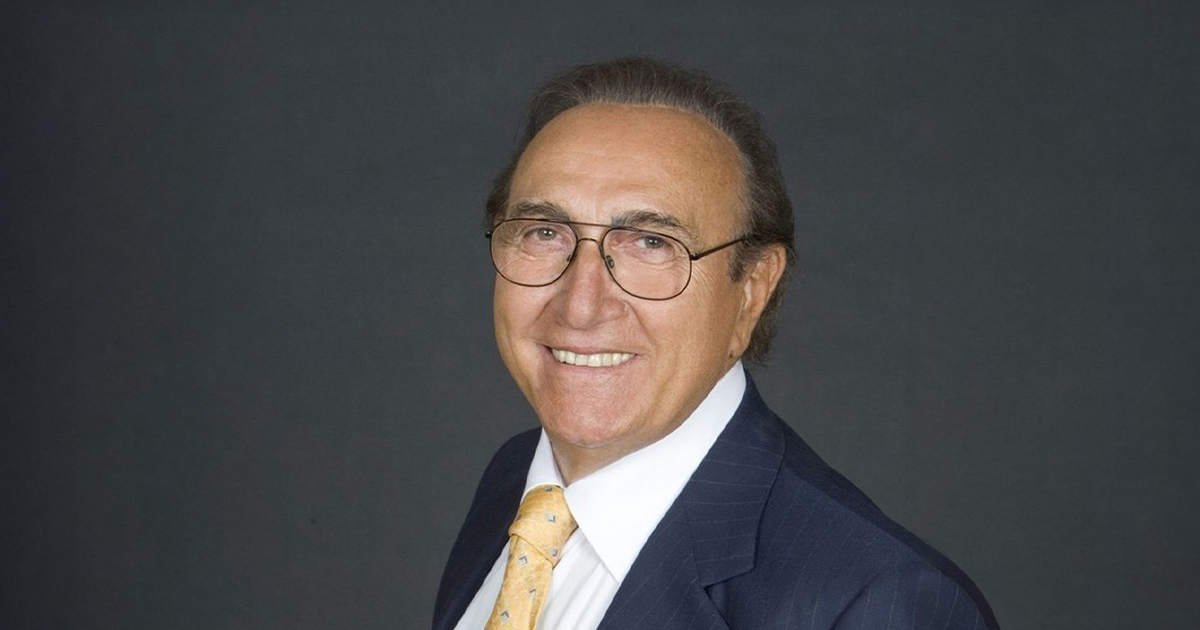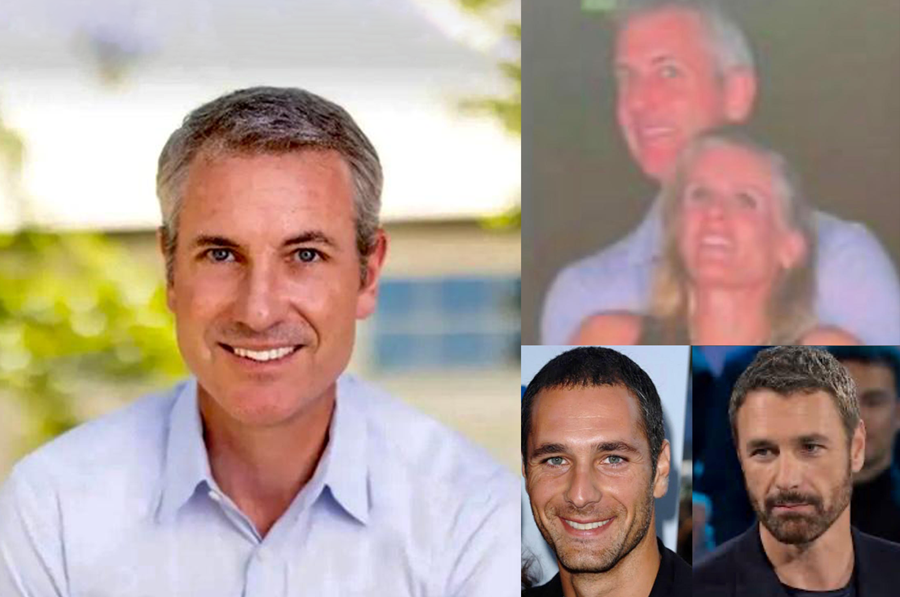- Italian
- English

È stata una serata d’agosto intrisa di fascino e leggerezza quella del 10 agosto al Grand Hotel di Rimini, nella cornice iconica della Terrazza della Dolce Vita, luogo che celebra il sogno felliniano e che ogni estate ospita grandi protagonisti dello spettacolo e della cultura. Qui, davanti a un pubblico caloroso, Patrizia Pellegrino ha conquistato la scena con la sua verve, tra sorrisi, confidenze e applausi scroscianti. Accanto a Simona Ventura e Giovanni Terzi, l’attrice e showgirl ha alternato aneddoti ironici a riflessioni intime, per poi presentare il suo nuovo libro, After the Fall, un romanzo che segna una tappa importante della sua carriera artistica.
Tra ironia e confessioni sul palco
La serata si è aperta con una conversazione frizzante. Si parla di attrazione per i “ragazzi un po’ malefici”, con Patrizia che scherza:
“Diciamo la verità: noi donne siamo un po’ tutte attratte da quel tipo lì.”
Giovanni Terzi si definisce autoironicamente “sfigato”, ma Patrizia lo contraddice: “Ma no, tu no!”. Le risate si intrecciano ai ricordi di Giovanni, che racconta il primo incontro con Simona Ventura: “Lei mi disse: la tua fama ti precede.” Simona rincara la dose: “La fama di Giovanni era che quando era fidanzato, ti giravi… spariva. Lo chiamavano Fantomas!” Giovanni ribatte: “Adesso invece sono come una cozza sullo scoglio.”
Patrizia interviene con calore:
“Giovanni e Simona sono bellissimi. Li ho visti a pranzo e vi assicuro, signori, che vivono una storia d’amore che io invidio molto. Beati loro, è un vero grande amore.”
Il pubblico esplode in un applauso fragoroso.
Quando Simona le chiede della sua vita sentimentale, Patrizia risponde senza filtri:
“Un casino! Ho un gemelli che un giorno è buono e un giorno è cattivo. A volte dico: che fortuna, un uomo stupendo. Altre volte: che stronzo! Non capisco mai con chi sto, perché è un gemelli vero: due personalità in un uomo solo. Eppure ci sto già da otto anni, quindi qualcosa di buono ci sarà. L’anno scorso ho passato un’estate bruttissima, poi ci siamo ripresi e adesso va avanti benino. Ho capito che non devo rompere le scatole: devo stare zitta e prendermi il meglio di questa storia. Un po’ come fa Ella, la protagonista del mio libro: prendo la parte bella. Questo è il consiglio che do alle donne: prendetevi la parte bella, la parte brutta nascondetela.”
Simona commenta: “Un buon consiglio.”
Poi si parla di Napoli, città nel cuore di Patrizia:
“Io tornerei a viverci anche domani. Ma i miei figli, cresciuti a Roma, non ci andrebbero. Non si rendono conto della bellezza, della magia, del calore di Napoli. Io sono folle come i napoletani, e infatti mi sono trovata un napoletano come me.”
La conversazione si sposta sul tema delle corna. Patrizia è netta:
“Oggi non mi terrei più un uomo che mi tradisce. Lo manderei via.”
Quando Simona le chiede dei prossimi progetti, la Pellegrino racconta con entusiasmo:
“Il prossimo ottobre sarò al Teatro Parioli di Roma con Angela Melillo in Bacco, Tabacco e Cenere. Poi a gennaio porterò in scena un nuovo testo di Gianni Clementi, uno dei più grandi autori del teatro italiano. Sarà una commedia brillante, con tante risate ma anche un finale sorprendente, pieno di valori. Quest’anno mi aspetta molto teatro, sarò in tournée con entrambe le commedie.”
Simona la incoraggia: “Patrizia merita emozionante arriva con la clip di Stra matta Ta, remix di Matta Ta . Tutti cantano insieme, mentre Patrizia ricorda:
“Ho girato questo video un mese dopo essermi operata di tumore al rene. Avevo i punti ancora freschi e cantavo da matta. Ma come l’araba fenice bisogna sempre rinascere. Io ho scelto di sorridere, e credo che la vera forza per ognuno di noi sia proprio il sorriso.”
Giovanni scherza: “E allora quando ti vedremo a Tale e Quale Show?”
Patrizia ride: “Sono sei anni che ci provo, ma non mi prendono!”
Simona chiude in allegria: “Carlo Conti, devi prendere Patrizia Pellegrino! Te lo chiede la Terrazza della Dolce Vita. E se non la prendi, qui non ti invitiamo!”
Il pubblico esplode di nuovo in applausi.
Il sipario della serata sembra chiudersi tra applausi e risate, ma Patrizia non si rifugia dietro le quinte. Scende dal palco e si mescola al suo pubblico, con la naturalezza che la contraddistingue: semplice, umile, gentile, pronta ad accogliere tutti.
È lì, nel giardino del Grand Hotel di Rimini, sotto un albero illuminato dalle luci calde della sera, tra due sedie in ferro battuto, un giardino pieno di vita, di sogni e di voci intrecciate, che Patrizia Pellegrino mi accoglie per l’intervista: un incontro intimo e sincero, in cui il clamore della terrazza lascia spazio alla profondità delle parole e alla delicatezza di un racconto personale.
After the Fall, la rinascita in un romanzo
- Perché After the Fall adesso? Che scintilla l’ha spinta a passare dall’autobiografia alla narrativa?
La scintilla è stata questa ragazza, la protagonista, che si chiama Ella. È venuta da me all’improvviso, di notte, e mi ha bussato con la sua vita, come se avessi avuto una premonizione, un presentimento, come se avessi visto un film nella mia testa. Ho avuto l’esigenza di scriverlo. After the Fall ci ho messo tanto tempo a scriverlo, più di un anno, però è venuto fuori proprio bene. Ho voluto dare un segno alle ragazze di oggi, che hanno perso qualcosa: con questo libro possono capire che anche se hanno avuto dolori che le hanno rattristate, si può sempre rinascere, si può sempre trovare una strada per ritrovare se stesse. Ed è quello che ho cercato di scrivere con questo libro. - Ella Moore “attraversa il mare” per fuggire un passato che morde: quanta parte di lei abita in Ella?
Nessuna parte di me, è tutto frutto della mia immaginazione. Devo ammettere, invece, nella nonna di Ella, Isabella, sì. Infatti Ella si chiama così perché la sua mamma, che viveva a Londra con lei, voleva dare un pizzico della sua vita personale alla figlia, prendendo il nome della nonna. In realtà Ella è dedicato a Isabella. Ma siccome la madre aveva rotto i ponti con la famiglia, perché non voleva che sposasse quell’uomo, e aveva ragione, tra l’altro, i rapporti si erano interrotti. Io invece mi vedo molto in Isabella: questa donna forte, piena di amore verso la cultura, verso la sua città che è Napoli, verso la bellezza del suo Paese. È una donna un po’ indurita dalla vita, cosa che posso capire, perché le donne subiscono talmente tante cose che a volte ci si può irrigidire. Però Isabella è piena di polso, di umanità e di amore. E la nipote Ella, la protagonista del libro, purtroppo lo scoprirà solo… beh, lo scoprirete leggendo il libro, perché credetemi: ne vale la pena. Si divora in tre o quattro giorni, come stanno facendo le mie amiche del cuore che lo leggono senza riuscire a staccarsi. - Nel romanzo c’è un amore che “non chiede nulla ma prende tutto”: che idea di consenso e dipendenza emotiva voleva esplorare?
Quella che c’è negli amori malati, negli amori di violenza, quelli che nascono sotto una cattiva stella. Perché quando l’amore di una ragazza così buona, fragile, vergine, nasce per un uomo sbagliato, può cambiarti la vita in peggio, può distruggerla. Questo libro l’ho scritto proprio per raccontare questa esperienza, e c’è una scena molto violenta che ho voluto inserire per far capire quanto, dopo, tu possa sentirti persa. Ma puoi sempre trovare una strada per riprenderti la tua vita. È una strada faticosa, difficile, piena di curve, ma è sempre possibile rinascere. E questa rinascita è possibile anche nella vita di Ella, che dopo essere “morta dentro” troverà comunque la strada per rialzarsi. - Rispetto all’altro suo libro, Ho scelto di sorridere, qui c’è un registro più sensuale. Perché?
È stato molto difficile per me dare questo taglio così vero, così sincero, anche così erotico, perché si parla di violenza che scaturisce un po’ anche nella perversione, nell’erotismo. A darmi quell’imprinting erotico fu un libro che lessi da ragazza: L’età di Lulù. Mi ha completamente cambiato la vita e mi ha fatto capire che nel brutto c’è anche del bello, anche nel sesso. Nel sesso c’è il brutto e c’è il bello, ci sono mille colori: il verde, il giallo, il rosso. Il sesso vero è fatto di fantasia. Quel libro mi ha insegnato che la fantasia sessuale si può vivere bene, eroticamente parlando, senza necessariamente farsi del male. E allora anche in questo libro, come in tutti i libri che scriverò in futuro, ho voluto inserire tanta fantasia erotica. Perché secondo me è bello leggere anche di erotismo, perché è verità. L’erotismo è poesia, è verità. Anche se in questo caso è duro, difficile, resta comunque verità. Un libro deve poterti emozionare a 360 gradi: deve darti amore, eros, dolore. Deve essere il frutto della nostra vita, e nella vita ci sono sia le cose belle che le brutte, e soprattutto c’è tanto sesso, e quindi va descritto. Non va tralasciato, va raccontato bene. E io questa scena nel libro l’ho voluta descrivere con tutta la sincerità possibile. - Immagina mai di vedere After the Fall adattato per il cinema o per una serie TV? E, in quel caso, chi lo dirigerebbe?
Lo dirigerei io, molto volentieri! Sarei la regista giusta. Lo immagino per Netflix o per Prime, perché guardo molta televisione: la sera, in inverno, o vado a teatro o resto a casa con la mia famiglia a vedere serie. E credo che Netflix sarebbe la piattaforma perfetta. - Un messaggio alle lettrici che “stanno cadendo” proprio ora?
Che domani è un altro giorno. C’è sempre un modo per risorgere. Basta non innamorarsi per forza di un altro uomo per stare meglio, ma innamorarsi di noi stesse. Voi dovete innamorarvi di voi stesse: se vi amate come donne, diventate responsabili della vostra vita, più forti, più sicure. E allora nessun uomo potrà più farvi del male.
Una nuova fase per una donna senza maschere
Alla Terrazza della Dolce Vita del Grand Hotel di Rimini, Patrizia Pellegrino non ha portato solo un libro, ma un messaggio: il coraggio di raccontarsi con sincerità, l’energia di chi ha scelto di sorridere nonostante le cadute, la capacità di trasformare fragilità e dolore in arte.
After the Fall è il suo passo successivo: un romanzo intenso, sensuale, doloroso e luminoso, che rispecchia la sua stessa essenza.
Applaudita, amata, circondata dal calore del pubblico, la Pellegrino ha dimostrato che il suo sorriso non è un vezzo da palcoscenico, ma una vera dichiarazione di vita. Un incontro che non è stato solo la presentazione di un libro, ma una lezione di resilienza e di forza. Patrizia Pellegrino, con il suo After the Fall, porta al pubblico una storia che è dolore e rinascita, fragilità e coraggio, un invito a guardarsi dentro senza paura.
E come scrive nelle pagine più potenti del romanzo:
“E per un istante mi sento di nuovo dentro quel corpo smarrito, affamato, fragile. Ma sono io, oggi. Io… riparto.”

It was a charming and light-hearted August evening on August 10th at the Grand Hotel in Rimini, within the iconic setting of the Terrazza della Dolce Vita, a place that celebrates Fellini’s dream and every summer hosts leading figures from entertainment and culture. Here, in front of a warm audience, Patrizia Pellegrino took the stage with her verve, alternating smiles, confidences, and rounds of applause. Alongside Simona Ventura and Giovanni Terzi, the actress and showgirl moved between witty anecdotes and intimate reflections before presenting her new book, After the Fall, a novel that marks an important chapter in her artistic journey.
Between irony and confessions on stage
The evening opened with a sparkling conversation. They talked about women’s attraction to the “slightly wicked kind of guy,” and Patrizia joked:
“Let’s be honest: we women are all a bit drawn to that type.”
Giovanni Terzi described himself, half-jokingly, as “a loser,” but Patrizia contradicted him: “No, not you!” Laughter erupted as Giovanni recalled his first meeting with Simona Ventura: “She told me: your reputation precedes you.” Simona added: “Giovanni’s reputation was that when he had a girlfriend, you’d turn around and—poof—he’d disappeared. They called him Fantomas!” Giovanni retorted: “Now I’m more like a limpet stuck to a rock.”
Patrizia, with warmth, chimed in:
“Giovanni and Simona are beautiful. I saw them at lunch, and I can assure you, ladies and gentlemen, that they live a love story I truly envy. Lucky them—it’s real love.”
The audience erupted into thunderous applause.
When Simona asked her about her own love life, Patrizia answered candidly:
“It’s a mess! I’m with a Gemini—one day he’s good, the next he’s bad. Sometimes I say: what luck, an amazing man. Other times: what a jerk! I never know who I’m dealing with, because he’s a true Gemini: two personalities in one man. And yet, I’ve been with him for eight years now, so there must be something good. Last summer was awful, but then we made up, and now things are going pretty well. I realized I mustn’t nag: I need to stay quiet and enjoy the best part of the story. Just like Ella, the protagonist of my book: I take the beautiful side. That’s my advice to women—embrace the beautiful side, and hide the bad.”
Simona agreed: “That’s good advice.”
Then came talk of Naples, the city always in Patrizia’s heart:
“I would move back there tomorrow. But my children, who grew up in Rome, wouldn’t come with me. They don’t realize the beauty, the magic, the warmth of Naples. I’m crazy like Neapolitans are, and in fact, I found myself a Neapolitan just like me.”
The conversation shifted to the subject of infidelity. Patrizia was firm:
“I wouldn’t stay with a man who cheats anymore. I’d send him away.”
When Simona asked about her upcoming projects, Pellegrino answered enthusiastically:
“This October I’ll be at Teatro Parioli in Rome with Angela Melillo in Bacco, Tabacco e Cenere. Then in January, I’ll bring a new play by Gianni Clementi, one of the greatest living Italian playwrights, to the stage. It will be a comedy full of laughs, but with a surprising, value-driven ending. This year I’ll be doing a lot of theater, touring with both productions.”
Simona encouraged her: “Patrizia deserves all this success.”
The most emotional moment came with the clip of Stra Matta Ta, a remix of Matta Ta. Everyone sang together as Patrizia recalled:
“I filmed that video a month after kidney cancer surgery. I still had fresh stitches, and I was singing like crazy. But like the phoenix, one must always rise again. I chose to smile, and I believe the real strength for all of us is exactly that: the smile.”
Giovanni teased her: “So when will we see you on Tale e Quale Show?”
Patrizia laughed: “I’ve been trying for six years, but they never pick me!”
Simona closed cheerfully: “Carlo Conti, you must take Patrizia Pellegrino! The Terrazza della Dolce Vita is asking you. And if you don’t, we won’t invite you here!”
The audience once again burst into applause.
The curtain on the evening seemed to close amid laughter and clapping, but Patrizia didn’t retreat backstage. Instead, she stepped down into the crowd, with her trademark naturalness: simple, humble, gracious, ready to welcome everyone.
There, in the garden of the Grand Hotel in Rimini, beneath a tree glowing in the warm lights of the night, between two wrought-iron chairs, in a space full of life, dreams, and intertwined voices, Patrizia Pellegrino welcomed me for an interview: an intimate, heartfelt conversation, where the bustle of the terrace gave way to the depth of words and the delicacy of a personal story.
After the Fall: rebirth in a novel
- Why After the Fall now? What spark pushed you from autobiography to fiction?
The spark was this girl, the protagonist, whose name is Ella. She came to me suddenly, in the night, and knocked on my door with her life—like a premonition, a vision, as if I had watched a movie in my head. I felt the need to write her story. It took me more than a year to finish After the Fall, but it came out really well. I wanted to give today’s girls a message: even if you’ve been through pain that left you saddened, you can always be reborn, you can always find a path back to yourself. That’s what I tried to convey with this book. - Ella Moore “crosses the sea” to flee a biting past: how much of yourself is in Ella?
None at all—she’s entirely a product of my imagination. But in Ella’s grandmother, Isabella, yes. Ella was named after her, because Ella’s mother—who lived with her in London—wanted to give her daughter a piece of her own past. But her mother had cut ties with her family, because they didn’t want her to marry that man—and they were right, by the way. I, on the other hand, see myself in Isabella: a strong woman, full of love for culture, for her city of Naples, for the beauty of her homeland. A woman hardened by life, which I can understand, because women endure so much. Yet Isabella is full of determination, humanity, and love. And Ella, the protagonist, will unfortunately discover this only later… but you’ll find out when you read it. Trust me, it’s worth it: it’s the kind of novel you devour in three or four days, as my closest friends are already doing. - In the novel there’s a love that “asks for nothing but takes everything.” What idea of consent and emotional dependency did you want to explore?
The kind that exists in toxic loves, in violent relationships, those born under a bad star. Because when a good, fragile, innocent girl falls for the wrong man, it can ruin her life. That’s why I wrote this story. There’s one particularly violent scene, which I wanted to describe in order to show how lost you can feel afterwards. But I also wanted to show that you can find a way back. It’s a hard, winding road, but rebirth is possible. And Ella, though she “dies inside,” eventually finds a way to rise again. - Compared to your previous book Ho scelto di sorridere, here the tone is more sensual. Why?
It was very difficult for me to give it such a raw, honest, even erotic edge, because it deals with violence that drifts into perversion and sexuality. The book that gave me this imprint was The Ages of Lulu, which I read as a young woman. It completely changed my life: it taught me that even in ugliness, there can be beauty—even in sex. Sex has ugliness and beauty, it has a thousand colors—green, yellow, red. Real sex is made of imagination. That book taught me that erotic fantasy can be lived healthily, without harm. So in this book, and in all those I will write in the future, I want to include plenty of erotic imagination. Because I think it’s beautiful to read about it—because it’s truth. Eroticism is poetry, it’s truth. Even when it’s hard, even when it’s dark, it remains truth. A book must move you in every way: give you love, eros, pain. A book should be the fruit of life itself—and life has both beautiful and ugly things. And yes, life has a lot of sex, so it must be described, not ignored. - Do you ever imagine After the Fall adapted into a movie or TV series? And if so, who would direct it?
I would direct it myself, gladly! I think I’d be the right director. I’d love to see it on Netflix or Prime Video, because I watch a lot of series in the evenings when I’m not at the theater. Netflix would be perfect. - A message to the women who are “falling” right now?
That tomorrow is another day. There’s always a way to rise again. Don’t fall in love with another man just to feel better—fall in love with yourself. If you love yourself as a woman, if you take responsibility for your life, you become stronger, more confident. And then no man will ever be able to hurt you again.
A new chapter for a woman without masks
At the Terrazza della Dolce Vita at the Grand Hotel in Rimini, Patrizia Pellegrino didn’t just present a book—she brought a message: the courage to be authentic, the strength of someone who chose to smile despite life’s falls, and the ability to transform fragility and pain into art.
After the Fall is her next step: an intense, sensual, painful, yet luminous novel that mirrors her own essence.
Applauded, loved, embraced by her audience, Pellegrino showed that her smile is not a stage gesture, but a true declaration of life. More than a presentation, it was a lesson in resilience and strength. With After the Fall, Patrizia Pellegrino gives readers a story of pain and rebirth, fragility and courage—an invitation to look inward without fear.
And as she writes in one of the most powerful passages of the novel:
“And for an instant I feel again inside that lost, hungry, fragile body. But it’s me, today. Me… I rise again.”
By author









